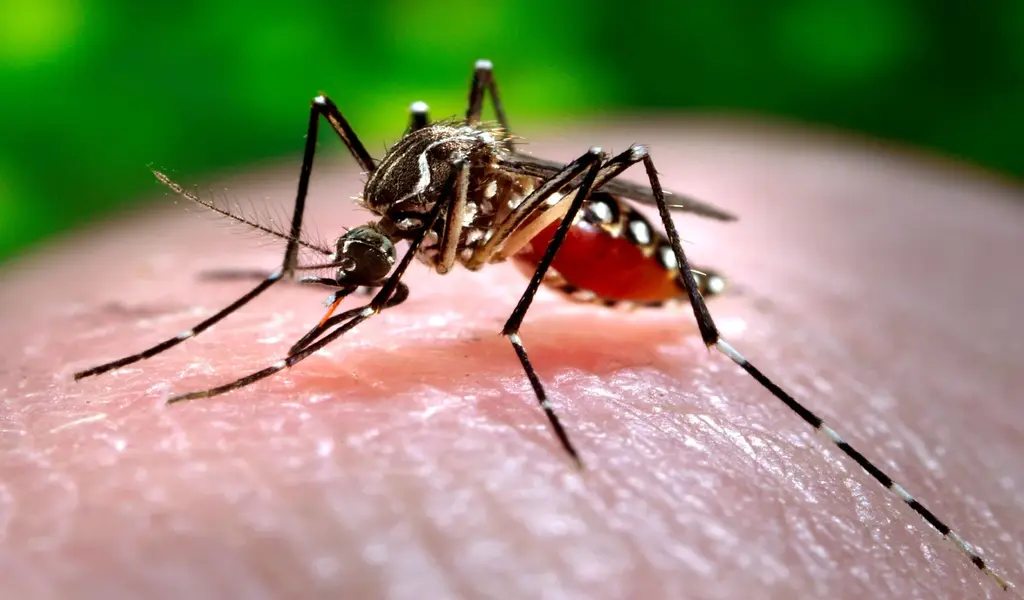Thailand’s Department of Disease Control (DDC) is presently dealing with what many experts estimate could be a catastrophic dengue fever outbreak, with up to 150,000 illnesses possible by the end of the year.
The number of dengue cases has already increased this year, according to Dr. Opas Karnkawinpong, permanent secretary for public health, with over 30,000 cases and 33 deaths registered so far.
On Monday, Dr. Opas spoke at a seminar on “Dengue: Effective Action for Treatment and Prevention” at Rajavithi Hospital.
“The ministry is extremely concerned about the rising number of dengue infections.” If preventive measures fail, they could reach 150,000 cases this year,” he warned.
In the past, infections were largely identified in youngsters, but the sickness has now been extensively detected in adults and senior persons, according to him.
This phenomena could be caused by adults and elderly persons who have never been infected with the disease before.
Dr. Opas stated that due to people’s movement, persons living in urban regions have a larger chance of contracting dengue than those living in isolated places.
“Following the end of the Covid-19 pandemic, people are now travelling more from one location to another.” As a result, individuals are more susceptible to contracting the disease.
“We want to raise awareness, and people should see a doctor right away if they suspect they have dengue symptoms.” We can save lives through screening and early detection,” he stated.
He went on to state that the dengue fever vaccine is still in its early stages and that further research is needed before widespread adoption can be contemplated.
“Our academic team is studying the case, and we don’t want to jump to conclusions too quickly.” “Any decision must be based on academic support rather than social pressure,” he stated.
Meanwhile, Dr. Chantana Pudungtod, director of the DDC’s Vector Borne Disease Division, stated that the current number of infections is 2.7 times greater than the same period last year.
According to her, the North is the most infected region, followed by the Central Plains and surges in the South and Northeast. The youngest patient was a one-month-old baby, while the oldest was 76 years old. The mortality rate is 0.11%.

Dengue Fever and the Aedes Aegypti Mosquito
Dengue fever is a viral disease caused by the dengue virus, which is transmitted to humans through the bites of infected mosquitoes, primarily the Aedes aegypti mosquito. It is a common mosquito-borne illness that affects millions of people worldwide, particularly in tropical and subtropical regions.
Symptoms of dengue fever typically appear 4 to 7 days after the mosquito bite and can last for up to 10 days. They can vary from mild to severe and may include:
1. High fever
2. Severe headache, often behind the eyes
3. Joint and muscle pain
4. Rash (usually appearing after a few days)
5. Fatigue and weakness
6. Nausea and vomiting
7. Mild bleeding, such as nosebleeds or bleeding gums
In some cases, dengue fever can progress to a more severe form known as dengue hemorrhagic fever (DHF) or dengue shock syndrome (DSS). These conditions can be life-threatening and require immediate medical attention. Warning signs of severe dengue may include severe abdominal pain, persistent vomiting, bleeding, restlessness, and difficulty breathing.
Currently, there is no specific treatment for dengue fever. Supportive care, such as rest, fluids, and fever-reducing medications like acetaminophen, is typically recommended. It is important to avoid non-steroidal anti-inflammatory drugs (NSAIDs), such as aspirin or ibuprofen, as they can increase the risk of bleeding.
Preventing dengue involves controlling mosquito populations and minimizing mosquito bites. This can be done by:
1. Eliminating standing water where mosquitoes breed, such as in containers, flower pots, or discarded tires.
2. Using mosquito repellents containing DEET on exposed skin.
3. Wearing protective clothing, such as long sleeves and pants, especially during peak mosquito activity times.
4. Installing screens on doors and windows or using bed nets to prevent mosquitoes from entering living areas.
5. Utilizing insecticides and larvicides to control mosquito populations in areas at high risk.
Vaccines for dengue fever have been developed, but their availability and usage may vary depending on the region. It is advisable to consult with healthcare professionals or local health authorities for the most up-to-date information on dengue prevention and vaccination in your area.




